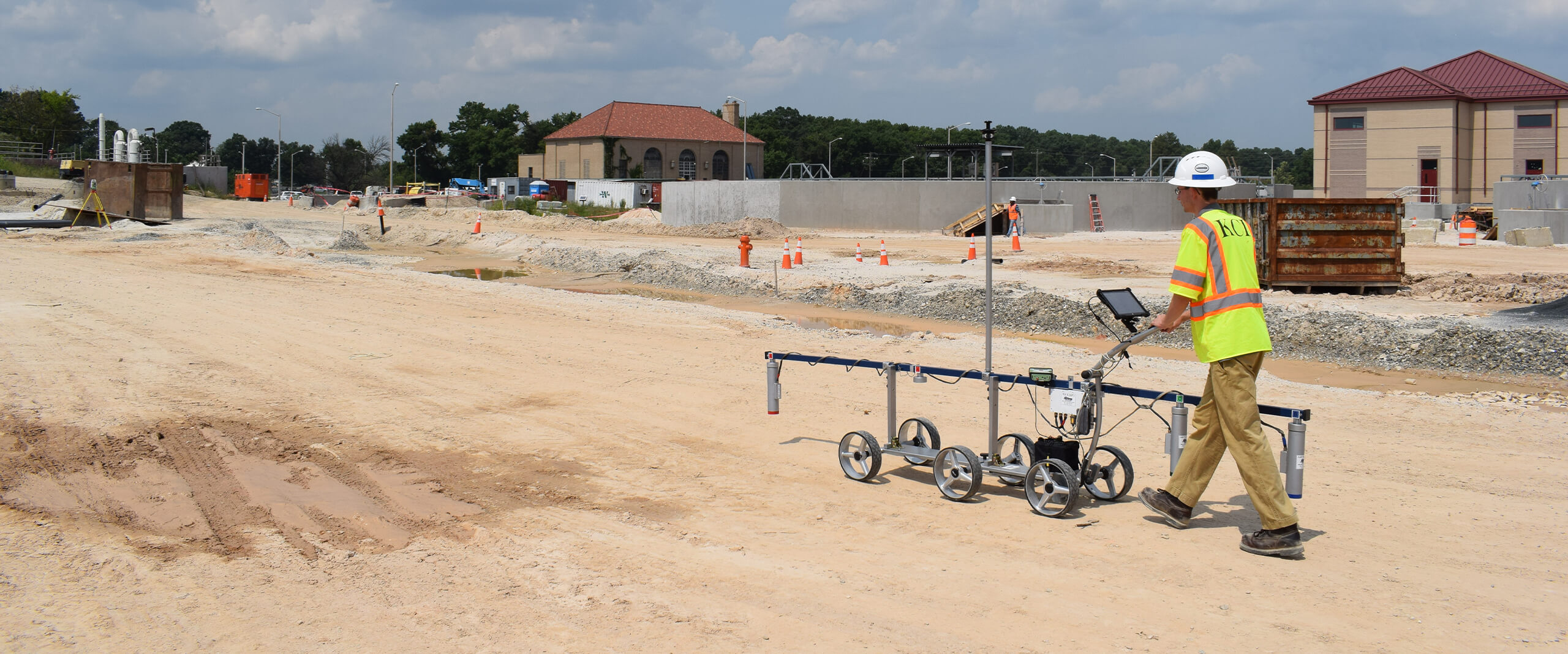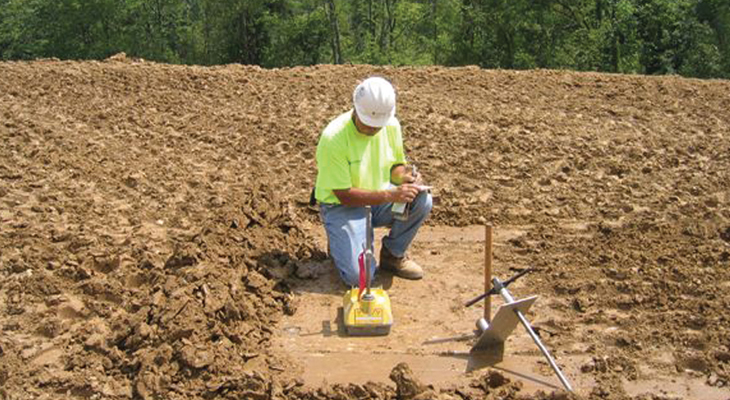Selecting the Right Geotechnical Engineers for Your Next Large-Scale Task
Selecting the Right Geotechnical Engineers for Your Next Large-Scale Task
Blog Article
Recognizing the Necessary Duty of the Geotechnical Market in Modern Construction Projects and Framework Development
The geotechnical sector is a keystone of modern construction and facilities advancement, providing essential understandings into soil actions that straight influence project outcomes. Through innovative dirt analyses and innovative engineering solutions, geotechnical professionals not only make sure architectural integrity but additionally address sustainability worries amidst developing environmental requirements. As facilities needs expand and brand-new difficulties emerge, the importance of this area comes to be increasingly apparent. What implications might these advancements have for future jobs and the total security of our built environment?
Importance of Soil Analysis
Soil analysis plays a critical role in the geotechnical sector, offering as the foundation for educated decision-making in construction tasks. Exact dirt examination is important for identifying the suitability of a site for different sorts of frameworks, including household homes, business structures, and bridges. By evaluating dirt make-up, moisture, density, and stamina web content, engineers can prepare for potential challenges and reduce risks associated with ground instability, disintegration, and settlement.
The analysis process typically includes a collection of examinations and observations that offer important information concerning the subsurface problems. This data educates the layout and building processes, ensuring that frameworks are improved solid ground with sufficient support. Furthermore, recognizing the dirt account enables engineers to select proper construction techniques and products, enhancing resource utilization and decreasing costs.
Along with ensuring architectural honesty, dirt analysis adds to environmental sustainability. By recognizing possible contamination or unfavorable effects on bordering communities, designers can carry out methods to shield these all-natural resources. Generally, complete soil evaluation is crucial in the geotechnical area, underpinning the security, performance, and environmental responsibility of building and construction jobs.
Key Geotechnical Strategies
A selection of essential geotechnical methods are used to boost the stability and assess and efficiency of building and construction sites. One foundational technique is soil tasting and screening, which permits engineers to identify the chemical and physical residential properties of the ground. This info is critical for making educated choices relating to structure layout and construction approaches.
An additional essential strategy is website characterization, which involves the comprehensive evaluation of dirt and rock conditions through techniques such as borehole exploration and in-situ screening. Strategies like Criterion Penetration Tests (SPT) and Cone Penetration Examinations (CPT) offer important information on soil stamina and stratigraphy.
Ground renovation strategies, such as soil stablizing and grouting, are likewise vital in enhancing the load-bearing ability of weak soils. These methods can reduce settlement and boost general website conditions.
In addition, slope stability analysis is crucial for identifying prospective landslide risks and guaranteeing the safety of excavations. This evaluation frequently uses numerical modeling and restriction equilibrium approaches to forecast soil behavior under different problems.
Integrating these geotechnical techniques into building preparation not only maximizes task results but additionally makes certain the lasting sustainability of infrastructure growth.
Effect On Construction Security

Additionally, effective geotechnical engineering involves carrying out mitigation approaches for recognized risks. This may consist of soil stablizing strategies, preserving structures, or drain systems to alleviate hydrostatic stress. By attending to these aspects, building groups can lower the likelihood of mishaps and improve employee safety and security.
In addition, constant tracking of website problems is vital during building and construction. Geotechnical instruments can give real-time information concerning ground motion and security, enabling timely interventions when essential.
In essence, the geotechnical industry plays an essential function in safeguarding construction tasks. By focusing on ground stability and utilizing strenuous evaluation techniques, the geotechnical industry not just secures the workforce yet also adds to the longevity and integrity of created facilities.
Sustainability in Geotechnical Practices

In addition, geotechnical engineers are currently utilizing innovative modern technologies, such as geosynthetics, which enhance soil stability while minimizing the volume of product needed. This not only preserves sources yet additionally leads to less waste generation (consulting engineer). The combination of sustainable style concepts right into geotechnical engineering urges making use of renewable resource sources in building procedures, even more reducing carbon discharges
Additionally, comprehensive site analyses are crucial for identifying potential ecological impacts before building starts. By performing these analyses, geotechnical experts can establish strategies that alleviate damaging results, making certain conformity with environmental laws. In general, the focus on sustainability within geotechnical practices not only contributes to the long life and durability of facilities but also promotes a liable strategy to land and resource administration. This commitment is important for promoting lasting advancement in the contemporary building landscape.
Future Trends in Geotechnical Engineering
Development is driving the future of geotechnical engineering, as arising technologies and techniques improve the sector. The assimilation of advanced data analytics and fabricated knowledge is readied to revolutionize website examination and danger assessment, allowing designers to make even more enlightened decisions based upon real-time information. The usage of geosynthetic products is getting traction, supplying lasting options that improve soil security and reduce ecological influence - geo tech engineer.
An additional considerable fad is the adoption of automated and robotic systems for surveillance and building processes. These modern technologies not just improve accuracy but additionally enhance security by lessening human involvement in hazardous environments. Furthermore, the application of Structure Details Modeling (BIM) in geotechnical design assists in boosted collaboration amongst stakeholders, optimizing task shipment and minimizing expenses.
As climate change positions new obstacles, the sector is increasingly concentrating on strength and adaptability in design practices, making sure framework can endure severe weather events. Finally, the recurring pattern toward sustainability will certainly drive innovation in green products and approaches, aligning geotechnical engineering with more comprehensive ecological goals. Collectively, these patterns will certainly shape a much more efficient, sustainable, and resilient geotechnical landscape for future tasks.
Final Thought

The geotechnical industry is a cornerstone of modern-day building and infrastructure development, offering vital understandings right into soil behavior that straight influence task outcomes. geo tech engineer.Dirt evaluation plays an essential function in the geotechnical market, offering as the foundation for informed decision-making in building jobs. In go general, thorough dirt blog here evaluation is crucial in the geotechnical field, underpinning the security, effectiveness, and environmental duty of building and construction projects
Building safety is considerably influenced by geotechnical techniques, as the stability and integrity of the ground straight affect the total security of a building site.In conclusion, the geotechnical sector is important in modern construction and framework growth, offering important analyses that make sure structural integrity and safety and security.
Report this page